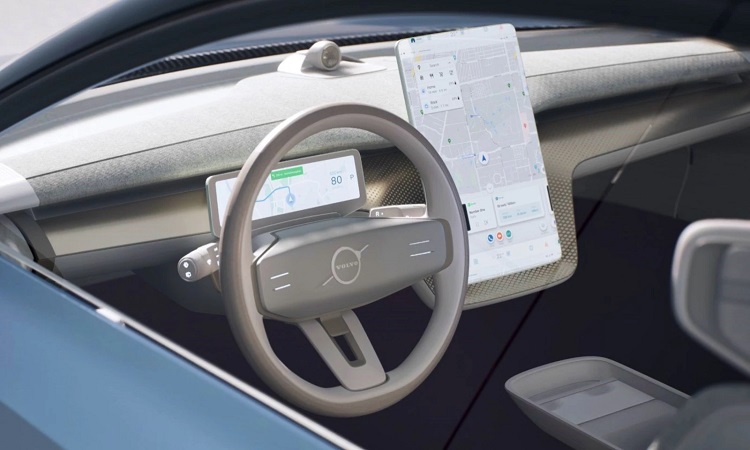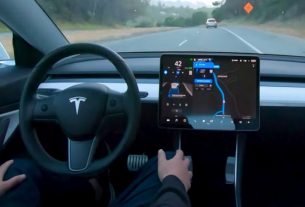The door is opened to a huge variety of new ways to inform and entertain passengers.
To deliver the best possible user experience, Volvo is bringing photo-quality display technology to the next generation of electric vehicles through a new collaboration with Epic Games.
Thanks to the association between both companies, future Volvo models will integrate Epic’s Unreal Engine game engine, this with the aim of offering unparalleled quality graphics in the cabin.
But first of all, it should be mentioned that Epic Games is one of the leading software and interactive entertainment companies, known above all for Fortnite, one of the most popular video games in the world.
Additionally, Epic Games develops the Unreal Engine, the most advanced real-time 3D creation tool used in industries other than video games. Precisely, this is the technology that Volvo is going to use to develop digital interfaces inside its vehicles and offer graphics in real time.
Volvo is the first vehicle manufacturer to use the Unreal Engine to develop the human-machine interface (HMI). Specifically, the focus will initially be on the Driver Information Module (DIM), one of the displays in the cabin that provides the driver with relevant information and infotainment functions.
In this way, the next generation of Volvo vehicles will equip screens with amazing graphics, through much sharper representations, more vivid colors and innovative 3D animations.
By combining the Unreal Engine with the high-performance computing power of the third-generation Snapdragon Cockpit platforms, Volvo cars will set a new standard in graphics and infotainment.
Consequently, Volvo’s next-generation multimedia system will be more than twice as fast as today, while graphics generation and processing is increased tenfold.
If there are no changes, the first vehicle to feature the new graphics is the all-electric flagship that Volvo will introduce before the end of 2022.
Looking ahead, the company sees more opportunities for the Unreal Engine to enhance other technological aspects of new vehicles, as Volvo developers explore other applications for these software-based platforms.
Volvo has a goal of developing half of its vehicle software in-house by 2025 and is hiring a lot of programmers to do so.




